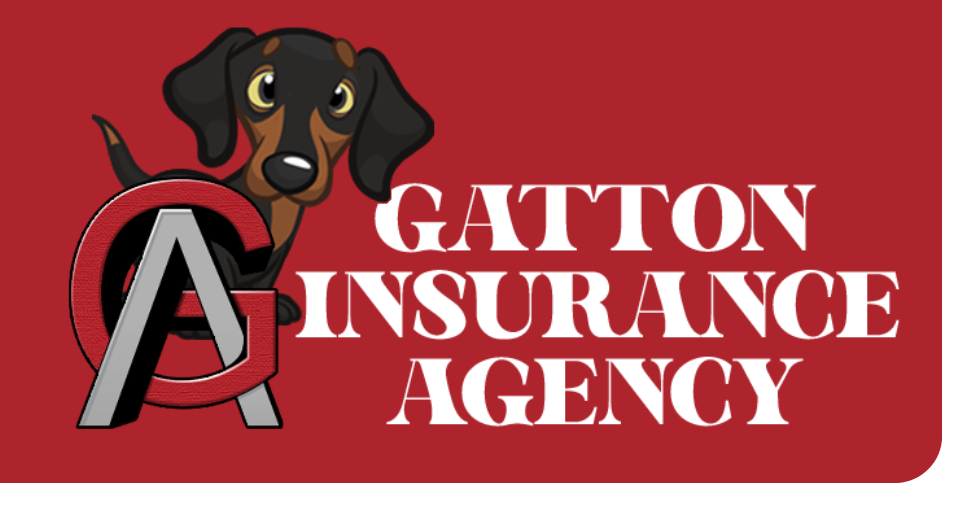Introduction to Insurance Laws in Indiana
Insurance laws in Indiana establish a regulatory framework designed to protect the interests of policyholders while ensuring a fair operating environment for insurance companies. Unlike some states that have more lenient regulations, Indiana implements specific requirements that insurance providers must adhere to, promoting transparency and accountability. Understanding these laws is crucial for residents as they navigate the sometimes complex world of insurance, whether it be health, auto, home, or any other type of coverage.
One of the distinct features of Indiana’s insurance laws is the emphasis on consumer protection. The state mandates that insurance companies maintain certain levels of reserves to safeguard against insolvency, thereby minimizing the risk for policyholders. Additionally, Indiana enforces various disclosure requirements, ensuring that consumers fully understand their insurance policies, including any exclusions and limitations. This is in stark contrast to states where such stringent measures may not be in place, potentially leaving consumers more vulnerable to unexpected liabilities.
Moreover, the Indiana Department of Insurance plays a pivotal role in regulating insurance practices, overseeing everything from licensing to complaint resolution. This oversight helps to ensure that companies operate fairly and that policyholders have an avenue through which to address grievances. Indiana’s insurance laws also include provisions that govern rates and policy form approvals, helping to keep insurance affordable and accessible for residents. As such, comprehending these unique laws is integral for all Hoosiers, not only to make informed decisions about their coverage options but also to understand their rights and protections as consumers within the insurance market.
Types of Insurance Regulated in Indiana
Indiana’s insurance landscape is shaped by a variety of regulations that govern different types of insurance policies. Understanding these regulations is essential for consumers. The primary categories of regulated insurance in Indiana include auto, home, health, and life insurance, each of which serves a distinct purpose in protecting policyholders.
Auto insurance is one of the most vital forms of insurance required by Indiana law, as it safeguards drivers from financial loss in the event of an accident. Indiana mandates minimum coverage levels for bodily injury and property damage liability. This regulation ensures that drivers can meet their financial obligations, thus promoting road safety and accountability. By adhering to these regulations, consumers can also better comprehend their rights and responsibilities when it comes to vehicle safety on Indiana’s highways.
Homeowners insurance provides coverage for individuals against damage to their homes and personal property. Indiana regulations emphasize the significance of this type of insurance, particularly regarding coverage for natural disasters, which can be prevalent in the region. Policies must state clearly what is covered, including protection against theft and fire damage. This transparency helps homeowners make informed decisions, while ensuring that their families have adequate protection against unexpected events.
Health insurance is another crucial aspect of Indiana’s insurance regulatory framework. With a focus on consumer protection, Indiana requires that health insurance plans cover essential health benefits. This law is especially beneficial for Indiana residents, as it helps to mitigate the high costs often associated with medical care. Policyholders can access necessary medical services without facing significant financial strain, fostering a healthier community.
Finally, life insurance regulations in Indiana are designed to protect beneficiaries by ensuring that insurers meet specific financial standards. This not only allows individuals to provide for their family members after their passing but also promotes confidence in the financial stability of insurance providers. Understanding these regulations enables consumers to select suitable life insurance policies that align with their needs.
Auto Insurance Requirements in Indiana
In the state of Indiana, it is mandated by law that all drivers carry a minimum level of automobile insurance to ensure financial responsibility on the roads. This requirement serves to protect drivers, passengers, and the public from the financial repercussions of accidents. The minimum insurance coverage required consists of three main components: bodily injury liability, property damage liability, and uninsured/underinsured motorist coverage.
The bodily injury liability coverage is set at a minimum of $25,000 per person and $50,000 per accident. This means that if a driver is at fault in an accident, their insurance must cover at least $25,000 for medical expenses incurred by an injured party, with a total cap of $50,000 for all victims in the event of multiple injuries. Additionally, property damage liability must be maintained at a minimum level of $25,000, which addresses the costs associated with damage to another person’s vehicle or property caused by the insured driver.
Furthermore, Indiana law requires drivers to have uninsured/underinsured motorist coverage, with the same minimum limits as bodily injury liability. This coverage is essential in ensuring that drivers are protected against individuals who lack adequate insurance to cover losses in the event of an accident. It provides an added layer of security for responsible drivers across the state.
Driving without adequate insurance in Indiana incurs strict penalties. Offending drivers may face fines, suspension of driving privileges, and the requirement to file an SR-22 form, which demonstrates proof of financial responsibility. The Gatton Agency emphasizes that ensuring compliance with these laws is crucial for all Indiana drivers, as it not only protects individuals financially, but also upholds the safety and accountability of the driving community.
Homeowners Insurance Regulations in Indiana
Homeowners insurance in Indiana is governed by a variety of regulations that aim to protect property owners while ensuring that insurance companies maintain fair practices. One of the key aspects of homeowners insurance in Indiana is the requirement for certain mandatory coverage types. In the state, policies typically include dwelling coverage, personal property coverage, liability protection, and additional living expenses. These components are essential for homeowners seeking to safeguard their investments against potential losses.
It is crucial for prospective policyholders to be aware of the policy exclusions associated with homeowners insurance. Common exclusions in Indiana may include flood damage, maintenance issues, and sewer backups. Notably, Indiana has experienced various natural disasters, such as flooding and tornadoes, which significantly influence homeowners insurance policies. Homeowners situated in areas prone to flooding may need to either secure a separate flood insurance policy, or ensure that their primary coverage has adequate provisions for flooding risks.
Additionally, claims scenarios within the state often revolve around wind and hail damage, especially following severe storms. Understanding how such incidents are treated under homeowners insurance policies can help Indiana residents navigate their coverage more effectively. For instance, damages caused by tornadoes may be covered, whereas losses from flooding might require separate insurance. The Gatton Agency exhibits expertise in aiding Indiana homeowners to comprehend these nuances, ensuring they choose policies that align with their individual circumstances.
By being aware of mandatory coverage types, potential exclusions, and common claims scenarios, Indiana residents can make informed decisions regarding their homeowners insurance. This understanding not only enhances their protection but also provides peace of mind in the face of the unique risks associated with living in Indiana.
Health Insurance Requirements and Marketplace Options
In Indiana, health insurance laws are shaped not only by state regulations but also by adherence to federal mandates such as the Affordable Care Act (ACA). The ACA introduced various provisions aimed at improving access to health care, including the establishment of health insurance marketplaces where individuals can compare and purchase insurance plans. These marketplaces are designed to enhance competition among insurers and provide individuals with more affordable options.
Indiana residents seeking health insurance must navigate a complex landscape that includes compliance with both federal and state laws. The state has its own set of regulations that govern issues such as coverage requirements, benefit provisions, and consumer protections. For instance, all individual and group health plans in Indiana are required to cover essential health benefits, which include items like emergency services, maternity care, and mental health services. This ensures that consumers have access to a broad range of necessary medical treatments without facing exorbitant out-of-pocket expenses.
Additionally, Indiana Medicaid provides insurance coverage for low-income individuals and families, reflecting the state’s commitment to ensuring that its citizens have access to health care services. Medicaid eligibility in Indiana is determined by factors such as income level, household size, and certain life situations. Understanding these criteria is crucial for those who may qualify and wish to take advantage of the benefits available through this program.
Moreover, consumer rights play a significant role in the health insurance landscape. It is imperative that individuals are aware of their rights under the ACA, which include protections against discrimination based on pre-existing conditions and the right to appeal insurance claims. Thus, understanding these provisions is essential for Indiana residents who wish to make informed decisions about their health coverage. The Gatton Agency emphasizes the importance of staying informed to navigate the available marketplace options effectively.
Life Insurance Policies and Regulations in Indiana
Life insurance serves as a vital financial security measure for families, providing peace of mind and protection in times of uncertainty. In Indiana, the gatton agency plays a crucial role in ensuring consumers understand the regulations surrounding life insurance policies and their rights as policyholders. The state’s insurance laws are designed to offer consumer protections that are essential for safeguarding individuals’ interests.
Indiana law mandates that all life insurance contracts include specific clauses that can significantly impact policyholders. For instance, the incontestability clause ensures that, after a certain period, the insurer cannot contest the validity of the policy based on misstatements made by the insured. This provision provides essential security for beneficiaries, reinforcing the importance of maintaining accurate and complete information during the application process. Furthermore, policies must clearly articulate the conditions under which the insurer will pay out benefits, addressing any questions regarding exclusions and limitations that may affect claims.
Another crucial aspect of life insurance in Indiana is the role of beneficiary designations. Policyholders have the authority to designate one or more beneficiaries to receive the death benefit upon their passing. It is imperative that individuals routinely review and update these designations, particularly following major life events such as marriage, divorce, or the birth of a child. Indiana law also stipulates that in the absence of a designated beneficiary, the benefits will typically be directed to the insured’s estate, which may not align with their original intent. Thus, understanding and navigating beneficiary designations is vital for ensuring that loved ones receive the intended financial support.
By familiarizing themselves with Indiana’s unique insurance laws, residents can make informed decisions regarding their life insurance policies. Seeking guidance from professionals, such as the gatton agency, can help individuals effectively navigate complex insurance landscapes, ultimately ensuring that their families are well-protected in the future.
The Impact of Claims on Insurance Premiums
Filing an insurance claim is a common event for many policyholders in Indiana, and it can notably influence the premiums that they pay. Insurance premiums are determined by multiple factors, and a key element in this calculus is the claims history of the policyholder. Insurers generally evaluate the frequency and nature of claims filed when determining renewal rates. In many cases, a history steeped in claims might signal to the insurer that the policyholder presents a higher risk, which can lead to elevated premium rates.
Indiana-based insurance providers, such as The Gatton Agency, often incorporate risk assessments based on individual claims records into their premium calculations. For instance, if a policyholder files several claims in a short period, they may not only see an increase in their rates but could also lose potential discounts associated with a clean claims history. Conversely, policyholders who maintain a no-claims status can benefit from no-claims discounts, thereby reducing their overall costs significantly.
Moreover, certain types of claims may impact premiums differently. For example, a minor claim related to property damage may have less influence on future premiums than a severe claim involving liability or bodily injury. Real-life examples underscore this point: an Indiana resident who files a series of small claims over the years could face significant premium increases, while another who files a single substantial claim may see a smaller overall impact on their insurance costs.
Ultimately, understanding how claims affect premiums helps consumers in Indiana manage their insurance expenses effectively. By being mindful of claims filing and maintaining a favorable claims history, policyholders can potentially enjoy better rates and improved coverage options from insurers like The Gatton Agency.
Gatton Insurance Agency: Your Partner in Navigating Indiana Laws
The Gatton Agency has established itself as a reliable partner for Indiana residents navigating the intricacies of state insurance laws. With a plethora of regulations governing the insurance landscape in Indiana, residents often find themselves overwhelmed when trying to ensure compliance while also securing the best possible coverage. The Gatton Agency specializes in clarifying these complexities, providing expert guidance tailored to individual and family needs.
One of the primary services offered by the Gatton Agency is personalized consultations. By engaging with clients one-on-one, they can assess specific circumstances and recommend insurance policies that align with both legal requirements and personal preferences. This level of individualized attention is crucial, as it helps clients understand the nuances of Indiana insurance laws in relation to their unique situations.
Additionally, the Gatton Agency provides policy comparisons to help clients make informed decisions. Understanding the various options available can significantly impact the effectiveness of insurance coverage. The agency’s team of knowledgeable agents is skilled at analyzing different policies, allowing clients to weigh the advantages and disadvantages effectively. This comparative approach ensures that residents are not only compliant with Indiana’s insurance regulations but also receiving competitive rates and adequate coverage.
Furthermore, the Gatton Agency offers invaluable assistance with claims processing. Navigating the claim process can often be daunting and confusing, particularly during stressful times. The agency’s experienced staff work diligently to streamline this process, helping clients file claims efficiently and ensuring they receive the benefits to which they are entitled under their insurance policies. By alleviating some of the burdens associated with claims management, the Gatton Agency strengthens its role as a trusted resource for Indiana residents.
Through these comprehensive services, the Gatton Agency exemplifies how individuals and families in Indiana can simplify the insurance process and ensure they are adequately protected while adhering to state laws.
Conclusion
As we have explored throughout this discussion, Indiana’s insurance laws present unique features that are critical for both residents and policyholders to understand. The nuances of these laws can significantly impact the coverage and benefits available to individuals and businesses. Knowledge of these regulations empowers residents to select appropriate insurance policies that meet their specific needs while ensuring compliance with state requirements.
Furthermore, being well-informed about the state’s insurance framework aids policyholders in avoiding common pitfalls, such as inadequate coverage or unexpected claims denials. Familiarity with Indiana’s laws can lead to more prudent decision-making regarding insurance products, whether it be auto, homeowner’s, or health insurance. Additionally, those engaged in specialized industries might find it particularly beneficial to understand the particular coverage mandates that apply within their sectors.
The Gatton Agency stands out as a reliable resource for residents needing guidance through the intricate landscape of insurance options available in Indiana. They offer expertise tailored to individual circumstances, which is invaluable in navigating the complexities of insurance laws and ensuring that residents are adequately protected. As you think about your insurance coverage, it is wise to review your current policies to ensure they align with your needs and the legal stipulations in Indiana.
In conclusion, staying informed about Indiana’s insurance laws is not merely advisable; it is essential for safeguarding your assets and ensuring peace of mind. By taking proactive steps and engaging with knowledgeable insurance professionals, such as those at the Gatton Agency, you can better protect yourself and your loved ones, fostering a well-informed approach to insurance that benefits all Indiana residents.






